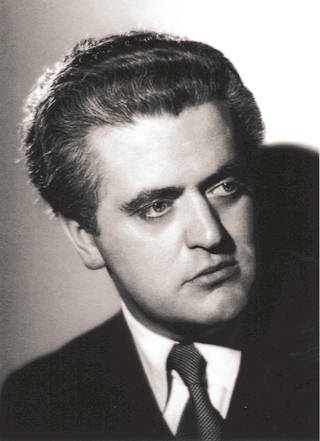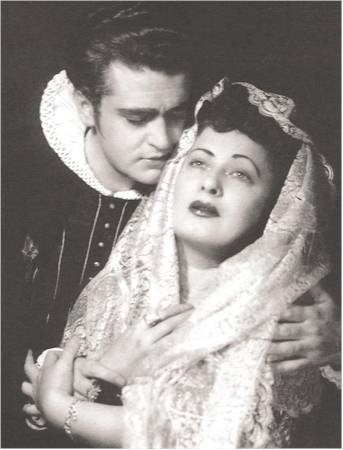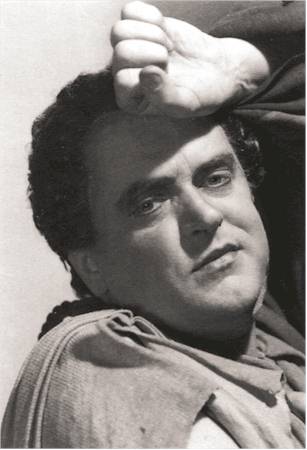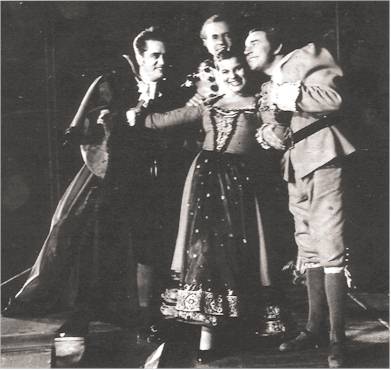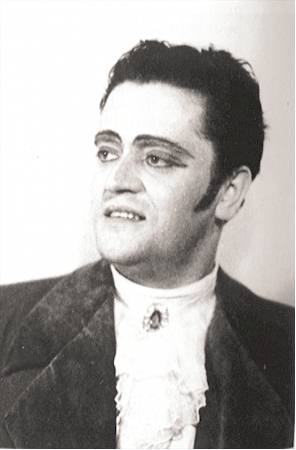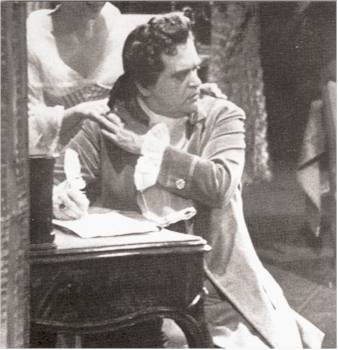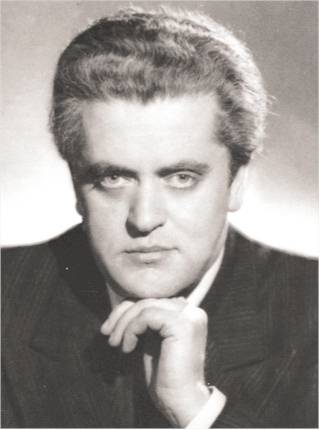Slovene tenor, 1910 - 1989
Biographical notes: He was born in Kropa (Slovenia) grewing up in poverty. Initially studying composition and organ
at the Ljubljana conservatory, he received a scholarship in 1934 which took him to Vienna where he devoted himself exclusively to vocal studies with the famous coach Marie Radó. He made his
early debut at the opera of Cluj (Klausenburg). It was Bruno Walter who immediately invited him to the Vienna State Opera where he made his debut in 1936 as first Man in Armour Mozart’s The
Magic Flute. His first major role was Alfredo in La Traviata in 1937. He remained a loyal member of the Staatsoper for more than 40 years (!) and became one of the most popular and celebrated
singers by the Viennese public. He also gained tremendous popularity at the Salzburg Festival where he appeared regularly for 20 years. His repertoire was wider than is often remembered
and his recordings give proof of this versatility. He was perhaps most renowned for his Mozart roles, such as Don Ottavio, Ferrando, Tamino and Belmonte. He also sang Jacquino, Cassio,
Nurredin, David, Alfredo in Fledermaus and La Traviata, Rodolfo, Lenski, Des Grieux, Flamand in Capriccio, Oedipus in Stravinsky’s Oedipus Rex, David, Hans in The Bartered Bride, Narraboth,
Leukippos, Hoffmann and Elemer in Arabella. Later he occasionaly ventured into the youthful “Heldentenor” repertoire, singing the title role in Smetana’s Dalibor, Max in Freischütz and Laca
in Jenufa. In 1955 he appeared as Florestan in the inaugural performance of the rebuilt Staatsoper with a splendid cast. His repertoire included all together 80 roles! His interpretation
of the title role in Pfitzner’s monumental opera Palestrina was well remembered by the Viennese public for many years. He was engaged at the operas of London, Paris, Rome, Naples, Teatro
Colón and toured Australia, Czechoslovakia and Hungary. Dermota was an accomplished lieder singer and gave hundreds of song recitals accompanied by his wife, the pianist Hilde
Berger-Weyerwald. In 1966 he became a sought-after singing coach at the Wiener Musikhochschule. In honor of “Kammersänger” Anton Dermota’s 70th birthday, the management of
the Vienna State Opera invited him to appear as Tamino (which he sang with a voice unimpared). He died after his 79th birthday in 1989.
Ljuba Welitsch (Donna Anna) and Anton Dermota (Don Ottavio)
As Leukippos in Strauss’ “Daphne”
Anton Dermota, Alfred Poell, Irmgard Seefried and Erich Kunz Don Giovanni was a Salzburg Festival production in 1950, conducted by Wilhelm Furtwängler. The cast also included Elisabeth Schwarzkopf, Ljuba Welitsch and the young Tito Gobbi as Don Giovanni
As Belmonte
As Des Grieux Comment: Anton Dermota was one of the most musical tenors singing at his time. In Vienna, the
highly-esteemed tenor was a leading representative of the lyric category. He was an outstanding figure in Austria’s musical life.
It is a delight to hear his smooth line, his gleaming tone and his “slavic-elegiac” vocalism. His smooth, honeyed “mezza voce” was marvellous. He had an imaginative way with Italian and French
music (despite the German language --> listen to his Des Grieux). Today, he is most remembered as a Mozartian tenor, but in my opinion he frequently lacked a sufficient legato. “Un aura amorosa”
has aspirated runs and a rather breathy tone, even sometimes slightly out of pitch. His vowels could sound somewhat nasal. This is - however - not of importance because whatever he sang was
superbly chiselled and presented as precious musical gems!
|
||||||||||||||||||||||||||||||||||||||||||||||||||||||||||||||||||||||||||||||||||||||||||||||||||||
